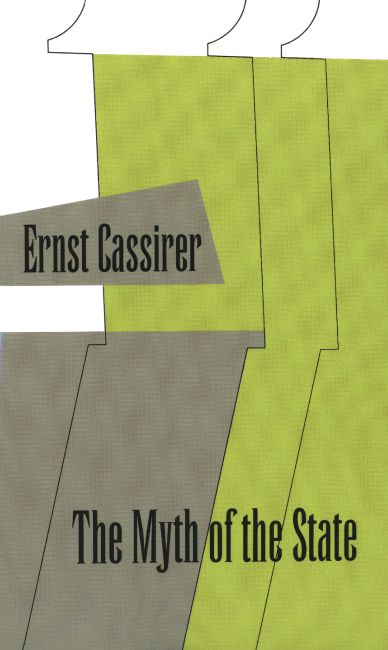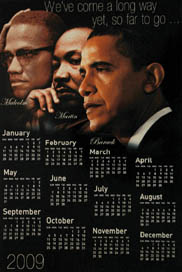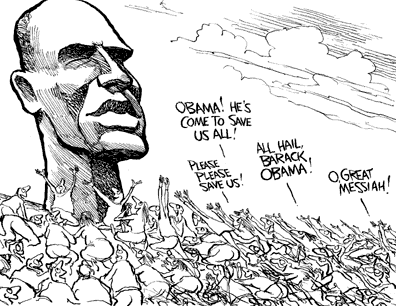
AnthonyFlood.com
Philosophy against Misosophy

“The word of the great man is the wise heal-ing word which all can believe in.” Ernst Cassirer, The Myth of the State, Yale Uni-versity Press, 1946. This posthumously published book is not the essay Cassirer wrote for Fortune in 1944, which one may read here.

* When I wrote those words (before your inauguration) I could not find the direct evidence that you would provide at your second press conference (March 25, 2009). There you said that “the most important thing that I can do for charitable giving is to fix the economy; to get banks lending again, to get businesses opening their doors again, and to get people back to work again. Then I think charities will do just fine.” You see, when a bus driver donates $100 to a charity, to use your example, he’s allowed to write off only 28% on his tax returns, whereas high rollers like you may deduct 39% and “I don't think that's fair,” you said. Right, Mr. President, it’s not. I have an idea: why not let the bus driver join you in writing off 39%? How about 100%? The notion that any degree of governmental lien on what we produce can be anything other than unjust is foreign not only to you, but also to the fawning “journalists” still hallucinating on the ideological peyote you sprayed at Grant Park last November 4th.

“Our modern politi-cians know very well that great masses are much more easily moved by the force of imagination than by sheer physical force. . . . The politician be-comes a sort of for-tuneteller. Prophecy is an essential ele-ment in the new tech-nique of rulership. The most improbable or even impossible promises are made; the millennium is predicted over and over again.” Ernst Cassirer, The Myth of the State (1945).
President Obama's commitment to the Gospel According to Keynes, replete with shameless invoking of The Sermon on the Mount, was on display (again) in his speech at Georgetown University, April 14, 2009.


You Cannot “Fix” the Economy, Mr. Obama.
Not in a hundred days.
Not in a thousand.
Although you haven’t directly claimed that you can “fix” the economy,* [see left column] that’s what the news anchors are saying is at the top of your to-do list. Such distortion is typical when they have to interpret a complex story for an audience the average mental age of which is about twelve.
But neither have you corrected this impression we have of your intentions. Unless and until you do, then, I’m not being unfair in reviewing the reasons why you cannot “fix” the economy because, for all I know, you might agree with them.
To begin with the obvious, the economy is not a machine that wears out and breaks down and so must be “fixed” or “jump-started.” It’s not a car, truck, or train that will collide with another or career off a cliff unless a skillful driver grabs its steering wheel. The economy doesn’t have moving parts that loosen and fall off and so need “rescuing.”
Neither is it a morbid organism that must routinely be “infused” with fluids or “shocked” or otherwise “stimulated” back from the brink of death. But such are the controlling metaphors of the day.
The economy is not “fixable” because it’s not breakable, like a machine, window, or bone. It is, rather, a complex social network of human beings. We do not relate to each other as machine parts (or organs) do to each other.
One way we relate to each other is economically. We cooperate and compete in the pursuit of our ends by exchanging things of value, both directly and indi-rectly. That is, we not only barter (which depends on a double coincidence of wants), but also calculate costs and benefits in money prices that reflect the supply and demand of what we want and what we offer in trade for what we want. Our relationships harm us, not when we “break” something, but when we err about them, both cognitively and morally.
To make matters worse, our moral errors often compound relatively simple intellectual errors often because we do not wish to recognize the latter as such. Our propensity to believe what we want to be-lieve, which often takes the form of trying to get something for nothing, can (if we do not strenuously countermand that propensity) inspire the silliest evasions of the facts.
Even if you abstain from using any of the crude metaphors listed above, Mr. Obama, your proposed “actions” cannot be neutral toward that vital flow of information about supply and demand, but will rather interfere with and distort that communication, so that we will, on the basis of the prices we encounter, infer shortages where there are gluts and gluts where there are shortages. Your policies will be no more market-neutral than is the considerable direct command of scarce resources the government already exercises. Through the coercive taxation and regulation that underpin its myriad “programs,” the federal government under your leadership will continue to attract factors of production—land, labor, and capital—away from where market forces would have allocated the, i.e., their socially optimal employment.
For reasons of politics, you and your prede-cessors, and your counterparts in every other coun-try, have in effect demanded that economic reality conform itself to various visions of “emergency” or “social justice” or “national greatness,” in which terms you have sold your reality-denying platform to the masses. What they have not been told is that in every case, politics spawned the very problem that politics is called upon, once again, to solve.
And you will find no shortage of economists, even some sporting Nobel Prizes, who will ratify your vision by telling you that money is indeed something a political leader may create out of thin air, following what is now a tradition going back to the previous great depression that stood economic science on its head. Since they covet tax-payer-funded grants as do members of every other class of academics, they see no advantage in calling for, say, the abolition of the Federal Reserve System and the return to the gold standard, which would, of course, set inconvenient limits to what messianic presidencies can do.
And so professional politicians, inspired by their ethical vision, find in academia the intellectual cover they need; and professional economists defer to the democratically elected ethical leader, thereby shifting to him the moral burden of asking tough moral questions. In other words, a dialectic of evasion of intellectual and moral responsibility permits the politician and the professor to take in each other’s dirty laundry. That’s what I meant above when I said that our relationships can harm us, not by “breaking” anything, but fostering cognitive and moral errors instead of exposing and repudiating them.
I fail to distinguish your proposed creation of three million make-work “jobs,” for example, from “workfare.” It will exchange an arbitrary number of chits called Federal Reserve Notes (FRNs), printable at governmental whim, for the labor of millions on “green” and “infrastructure” projects. Bureaucrats, who can no more calculate how much of what to produce than could the hapless Soviet Five Year Planners of yesteryear, will direct the whole thing. I’m sorry, but I lack the audacity to hope for better results. There are simple intellectual errors at root here, but your political vision will occlude your vision of them.
One of your suggested lubricants for “tight” credit markets, to take another example, is continued federal borrowing that “crowds out” other borrowers, but at an unprecedented level. Here again, no Wall Street genius is going to put his career on the line by suggesting that you hold up this insanity to your face and meditate on it before going forward with it, even though it lies within the scope of their professional competency to do so. He would much rather serve as the “public citizen” economist trotted out on the financial news networks to drape an intellectual cloak over your vision’s shoulders.
What we are witnessing is the spectacle of well-established people—politicians like yourself and academics like many of your advisors—reinforcing each other’s subscription to the myth that the taxpayer is actually directing his own self-mulcting through duly elected representatives. That is, he is only taxing first himself and then his grandkids for his overspending of every year’s tax revenue, depreciat-ing his own currency in the process. After all, what exactly is the taxpayer borrowing and what is his instrument? Treasury bills denominated in dollars incarnated as FRNs? The latter may still function as money, but they are obviously as substantial as the Cheshire cat’s smile.
Just the other day, during the first hour of Niall Ferguson’s PBS special, The Ascent of Money, I heard the former Federal Reserve Chairman Paul Volcker attempt to distinguish a con game from the Fed’s allegedly honorable confidence game (his term) that we all participate in. He seems to have realized immediately that “confidence” was absolutely the worst word choice he could have made, for the “con” in “con game” is but a contraction of “confidence.” The attempt was so clumsily unsuccessful I’m surprised it survived editing.
Earning a living off another’s trust does not make one’s enterprise a “con.” Only certain knowledge of the latter’s unsustainability, which the con artist assiduously keeps from his victims, makes it so.
Taxpayers are indeed losing “confidence in the credit markets.” Rather than conclude, however, that credit markets dealing in the fiat currencies of central banks are not worthy of confidence and ought to be replaced forthwith by commodity currencies, you have allied your goals with those of the central bankers (all of whom profit from the scam) by shoring up those existing markets by whatever political means you can.
Paul Volcker has certain knowledge of that the game is unsustainable, and that makes him a con man. Just why are you proud to tell America that you get economic counsel from him?
As reality sets in, con games collapse, almost instantly. We will accept dollars in payment only as long as we can pay others with them. The day we cannot do the latter is the day we will not do the former. Your policies threaten to hasten that day because they do not touch what Mr. Volcker inadvertently called a “con game.”
No, you cannot “fix” the economy, but you can impede the operation of market forces—people making deals, that is, being productive of solutions to our individual and common problems—that alone would allow it to reform itself on a sound basis. Impede it you will, however, if you are merely going to vary the theme that your predecessors have sounded, and thereby further distort price signals, misallocate resources, and potentially hyperinflate the currency.
Intellectually you must know that
· the government does not own anything it did not acquire by force or the threat thereof;
· borrowing money by offering Treasury Bills that the government can honor only by more such borrowing is an un-sustainable, not to say fraudulent, en-terprise, regardless of how many people participate in this racket;
· printing FRNs without a corresponding increase in the production of goods and services must decrease each note’s purchasing power, thereby diminishing every fortune denominated in dollars;
· the Social Security Act of 1935 has never been a genuine “insurance” plan, but rather a Ponzi scheme that dwarfs Bernie Madoff’s (both in magnitude and, since participation in the latter was voluntary, turpitude).
Intellectually, you must know, at least subcon-sciously, these and many other kindred truths, but politically and psychologically you seem incapable of entertaining them explicitly. Help is available, how-ever, and here is my suggestion: the next time you are moved to “reach across the aisle,” why not give Congressman Ron Paul of Texas a call? He is eminently qualified to bring these implicit com-monsensical truths to your consciousness and deduce their implications. You will, of course, draw your own conclusions about his counsel, which would be informed largely by the same principles that inform this essay. At least when the ill consequences of your proposed policies reveal themselves, you will not be able to say that nobody told you so.
You cannot “fix” the economy, Mr. Obama. What you can do, but have no intention of doing, of course, is help liberate the American people from the economy’s greatest enemy, namely, the state, to preside over which you have fought so hard. As the state is rolled back, the deformed economic relations to which so many defective metaphors refer will reflect once again our nature, our relationships, and our property.
What is more likely, however ironic and tragic, is that in the name of restoring America’s “greatness,” you will only catalyze her descent into oblivion.
January 17, 2009
